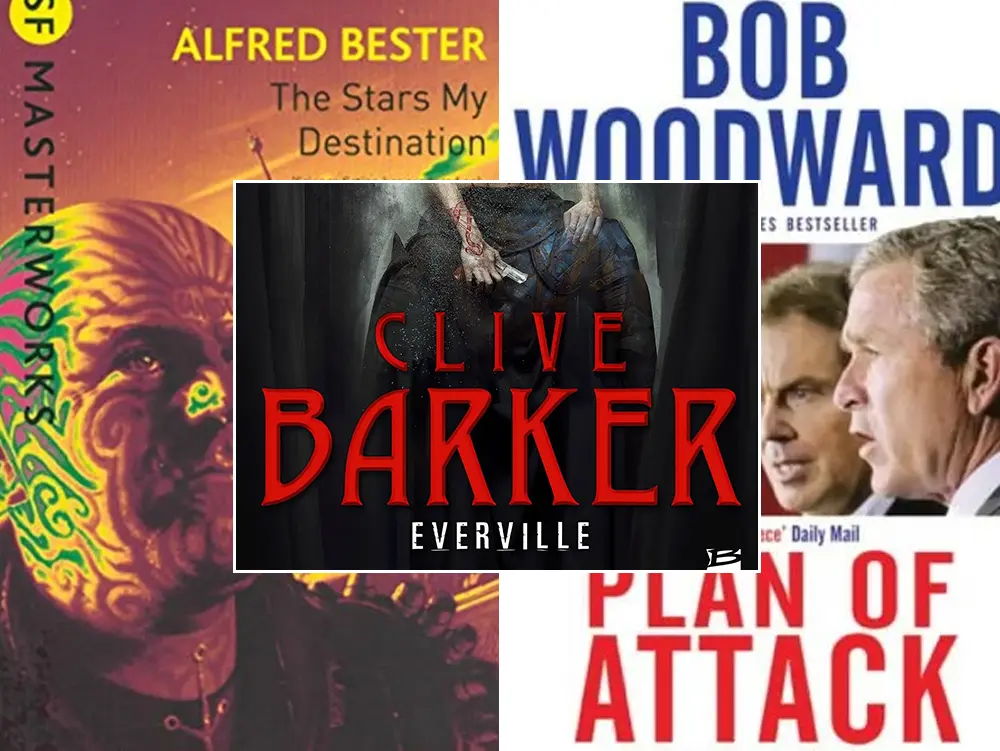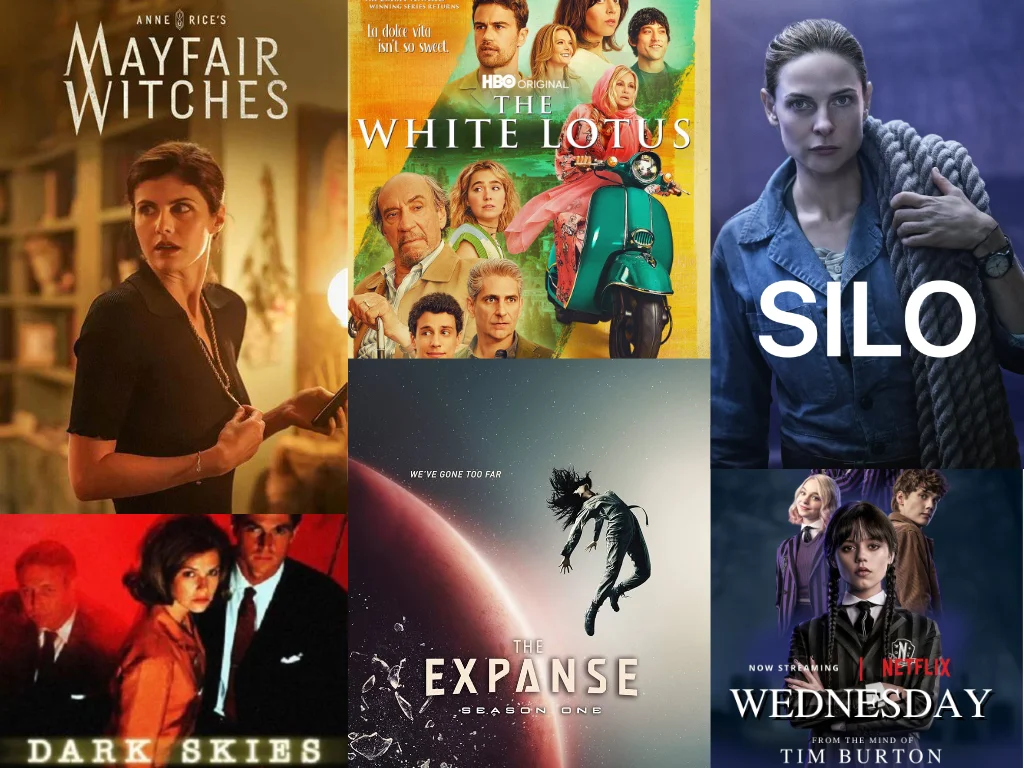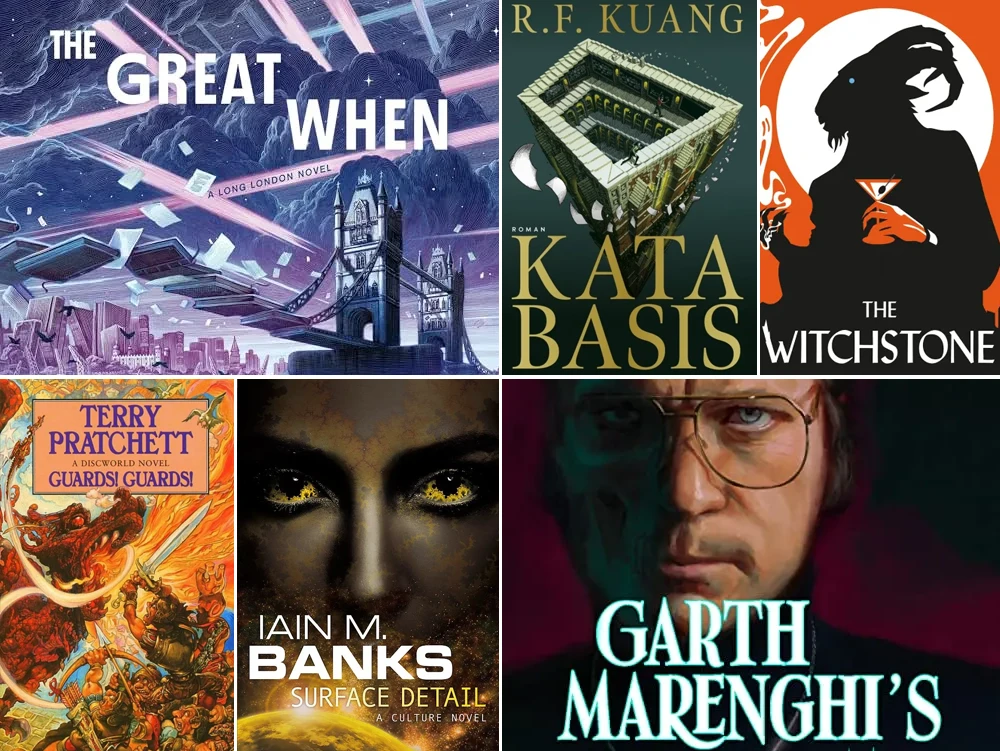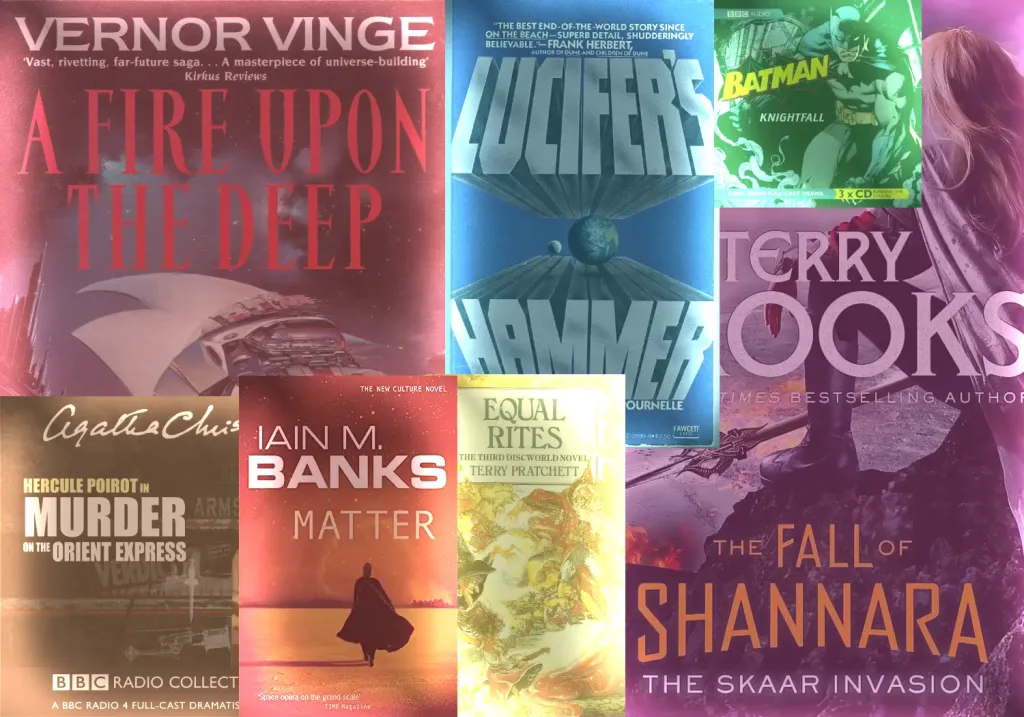Coming up to the end of October and I’m ready to start my next batch of audiobooks. Thirteen books in this list should keep me busy for awhile.
Going to start with Carl Sagan’s Contact, never watch the film, but I can only imagine the book is way better anyway…..
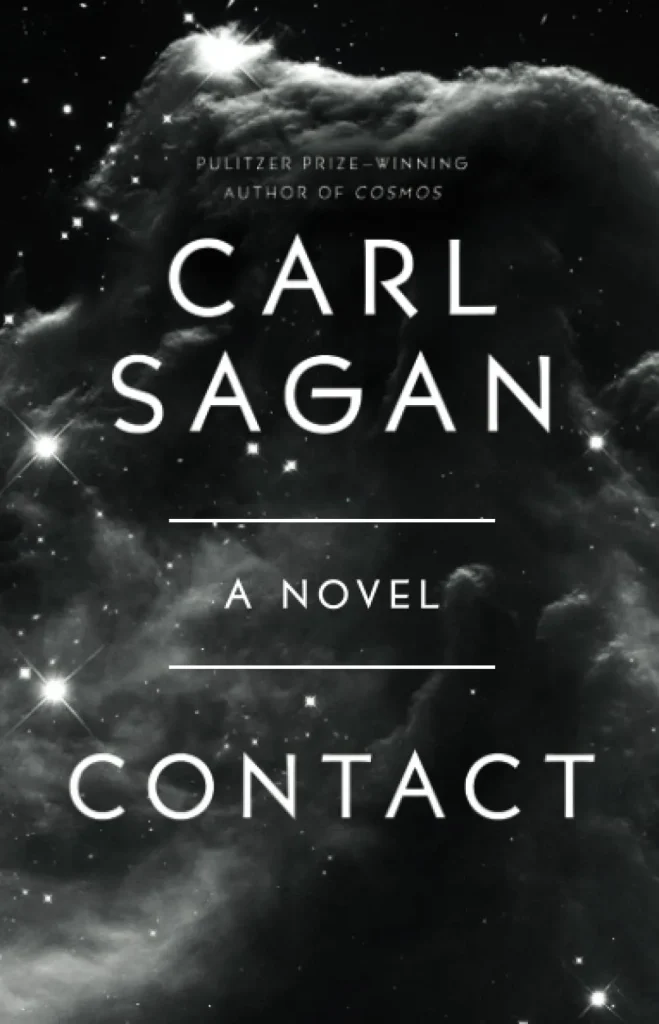
Contact: by Carl Sagan
Dr. Ellie Arroway works for SETI and detects a signal from the star system Vega, which turns out to be a series of prime numbers—clear evidence of an intelligent origin. The signal contains instructions for building a complex machine, believed to be a transportation device.
Ellie and an international team construct the machine and embark on a journey, where they experience something extraordinary—contact with an advanced extraterrestrial civilization. The encounter challenges their understanding of life, faith, and humanity’s place in the cosmos.
Sagan weaves together scientific rigor and profound philosophical questions, making it a rich and thought-provoking read. He delves into the tension between science and religion, the search for meaning in the universe, and the potential impact of contact with extraterrestrial intelligence on human society. It’s a compelling blend of hard science fiction and deep reflection on human nature.

Want: by Gillian Anderson
A collection of women’s sexual fantasies from women around the world, Want is a revelatory, sensational and game-changing exploration of women’s sexuality that asks, and answers: How do women feel about sex when they have the freedom to be totally anonymous?
What do you want when no one is watching?
Who do you fantasize about when the lights are off?
When you think about sex, what do you really want?
When we talk about sex, we talk about womanhood and motherhood, infidelity and exploitation, consent and respect, fairness and egalitarianism, love and hate, pleasure and pain. And yet so many of us don’t talk about it at all.
In this groundbreaking book, Gillian Anderson collects and introduces the anonymous sexual fantasies of hundreds of women from around the world (along with her own anonymous fantasy). The fantasies are extraordinary: they are full of desire, fear, intimacy, shame, satisfaction and, ultimately, liberation. From fantasising about someone off-limits to conjuring a scene with multiple partners, from sex that is gentle and tender to passionate and playful, from women who have never had sex to women who have had more sex than they can remember, these letters provide a window into the most secret part of our minds.
Want reveals how women feel about sex when they have the freedom to be totally themselves.
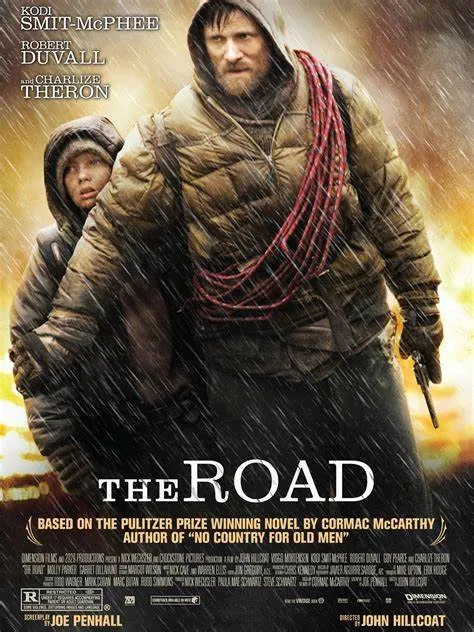
The Road: by Cormac McCarthy
A father and his young son journey on foot across the post-apocalyptic ash-covered United States some years after an undefined extinction event; the death of all plant life and virtually all animal life. The boy’s mother, who was pregnant with him at the time of the disaster, has died by suicide at some point after his birth.
Realizing they cannot survive the winter in northern latitudes, the father takes the boy south along county roads towards the sea, carrying their meager possessions in their knapsacks and a supermarket cart. The father is suffering from a cough. He assures his son that they are “good guys” who are “carrying the fire”. The pair has a revolver, but only two rounds. The father has tried to teach the boy to use the gun on himself if necessary, to avoid falling into the hands of cannibals.
They attempt to evade a group of marauders traveling along the road but one of the marauders discovers them and seizes the boy. The father shoots the marauder dead and they flee the marauder’s companions, abandoning most of their possessions. Later, when searching a mansion for supplies, they discover a locked cellar containing people whose captors have imprisoned them alive in order to eat them limb by limb and flee into the woods.
As they near starvation, the pair discovers a concealed bunker filled with food, clothes and other supplies. They stay there for several days regaining their strength and then carry on, taking supplies with them in a cart. They encounter an old man with whom the boy insists they share food. Farther along the road they evade a group whose members include pregnant women, and soon after they discover an abandoned campsite with a newborn infant roasted on a spit. They soon run out of supplies and begin to starve before finding a house containing more food to carry in their cart, but the man’s condition worsens.
The pair reaches the sea, where they discover a boat that has drifted from shore. The man swims to it and recovers supplies, including a flare gun, which he demonstrates to the boy. The boy becomes ill. When they stop on the beach while the boy recovers, their cart is stolen. They pursue and confront the thief, a wretched man traveling alone. The father forces him to strip naked at gunpoint and takes his clothes together with the cart. This distresses the boy, so the father returns and leaves the man’s clothes and shoes on the road, but the man has disappeared.
While walking through a town inland, a man in a window shoots the father in the leg with an arrow. The father responds by shooting his assailant with the flare gun. The pair moves further south along the beach. The father’s condition worsens, and after several days he realizes he will soon die. The father tells the son he can talk to him after he is gone, and that he must continue without him. After the father dies, the boy stays with his body for three days. The boy is approached by a man carrying a shotgun. The man tells the boy he and his wife have a son and daughter. He convinces the boy he is one of the “good guys” and takes the boy under his protection
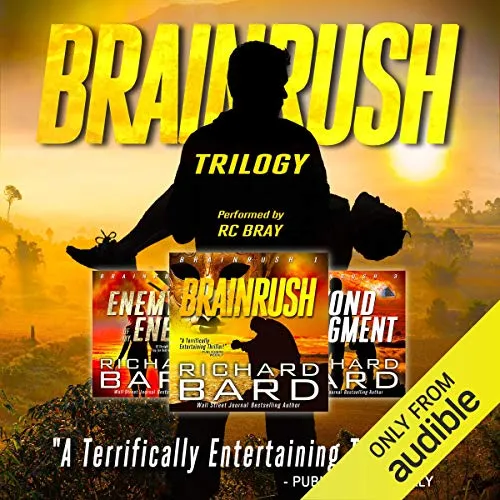
The Brainrush Trilogy Box Set: by Richard Bard
Before he slid into the MRI machine, Jake Bronson was just an ordinary guy with terminal cancer. But when an earthquake hits during the procedure, Jake staggers from the wreckage a profoundly changed man, now endowed with uncanny mental abilities. An ocean away, Luciano Battista wants a piece of Jake’s talent. Posing as a pioneering scientist, the terrorist leader has been conducting cerebral-implant experiments in a sinister quest to create a breed of super jihadist agents…and Jake’s altered brain may be the key to his success. But Jake refuses to play the pawn in an unholy war – and when an innocent woman and autistic child are taken hostage to force his cooperation, he embarks on a jihad of his own.
Jake and his band of loyal friends are thrust into a deadly chase that leads from the canals of Venice through Monte Carlo and finally to an ancient cavern in the Hindu Kush mountains of Afghanistan – where Jake discovers that his newfound talents carry a hidden price that threatens the entire human race.
The wild ride continues from the beaches of California to a raging underground river in Mexico, the rain forests of Venezuela, the Mediterranean coast, the Swiss Alps, and finally to a secret southeast Asia island, where Jake must lever every scrap of his failing brain to prevent an apocalyptic disaster.
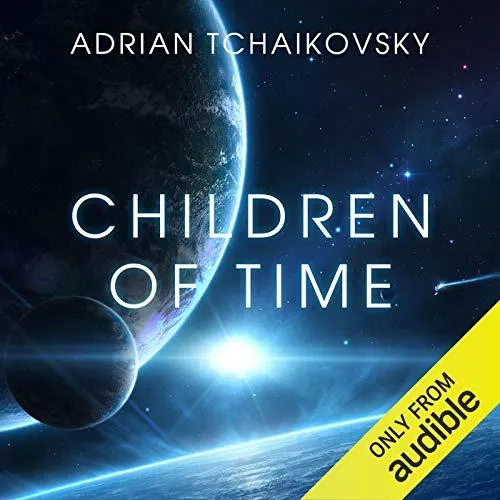
Children of Time: by Adrian Tchaikovsky – book1
In the far future, Dr. Avrana Kern is the head of a science team orbiting a terraformed, previously uninhabitable exoplanet that she hopes will be named “Kern’s World.” The team is preparing to release a genetically designed nanovirus onto the new world to accelerate the evolution of a group of monkeys. There is talk of war stirring back home between authorities and multiple anti-technology factions opposed to this kind of genetic engineering, including a terrorist group or radical movement known as “non ultra natura” (nothing greater than nature).
Dr. Kern learns there is an agent of an anti-technology group aboard the ship about to overload the reactor, and she flees aboard an escape pod before anyone else can. The payload of monkeys is jettisoned from the ship in a landing craft but it burns up in atmospheric entry. With no monkeys on Kern’s World, and its ecosystems originally seeded with a minimum of possible competitor species for Kern’s experiment, the nanovirus spends its time infecting and altering a multitude of living creatures, a notable example being jumping spiders (Portia labiata)—referred to in the book as Portiids. Dr. Avrana Kern is left stranded in orbit awaiting rescue, periodically waking from stasis, troubled by the sudden cessation of radio signals bleeding out from humanity’s home.
Many millennia pass, and civilization reemerges on Earth from the hunter-gathering descendants of survivors, eventually salvaging machinery leftover from Kern’s time, which is only known as the Old Empire. Faced with the slow collapse of Earth’s biosphere due to the long-delayed consequences of the ancient war, the last remnants of humanity are en route to Kern’s World aboard the starship Gilgamesh, hoping for a paradisiacal planet and ignorant of the uplifted Portiid spiders. Confronting Dr. Avrana Kern in orbit, powerful and rendered crazed and xenophobic by the millennia, the Gilgamesh takes a centuries-long detour to a neighboring system that proves uninhabitable. The novel plays off the contrast between the rapid advancement of the spiders’ societies and the descent of the crew of last humans into strife and barbarism, primarily seen through the eyes of the Gilgamesh’s chief classicist, Holsten Mason.
After the Gilgamesh returns to Kern’s World, the two narratives collide, seemingly dooming one or both sides to extinction. The Portiids, on the other hand, devise a strategy that saves both their world and the invaders, uniting with and inviting the last humans to live with them on Kern’s World, drawing on past genetic memories, known as “Understandings,” which showed collaboration was the better option in the end.
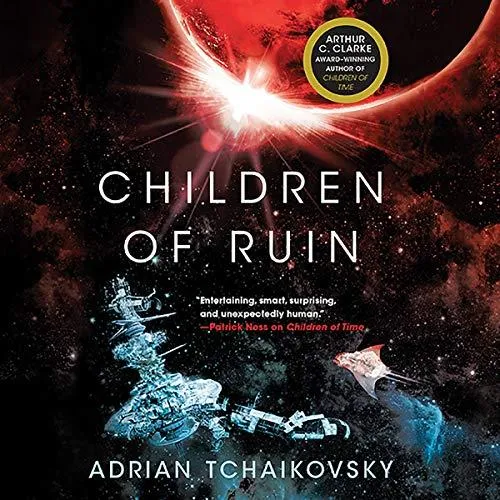
Children of Ruin: by Adrian Tchaikovsky – book2
The astonishing sequel to Children of Time, the award-winning novel of humanity’s battle for survival on a terraformed planet.
Long ago, Earth’s terraforming program sent ships out to build new homes for humanity among the stars and made an unexpected discovery: a planet with life. But the scientists were unaware that the alien ecosystem was more developed than the primitive life forms originally discovered.
Now, thousands of years later, the Portiids and their humans have sent an exploration vessel following fragmentary radio signals. They discover a system in crisis, warring factions trying to recover from an apocalyptic catastrophe arising from what the early terraformers awoke all those years before.
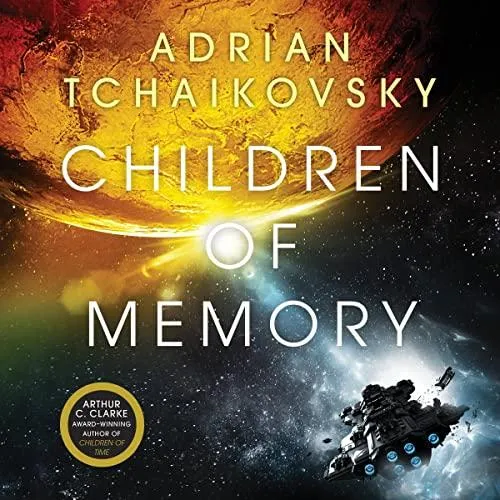
Children of Memory: by Adrian Tchaikovsky – book3
The modern classic of space opera that began with Children of Time continues in this extraordinary novel of humanity’s battle for survival on a terraformed planet.
Earth failed. In a desperate bid to escape, the spaceship Enkidu and its captain, Heorest Holt, carried its precious human cargo to a potential new paradise. Generations later, this fragile colony has managed to survive, eking out a hardy existence. Yet life is tough, and much technological knowledge has been lost.
Then strangers appear. They possess unparalleled knowledge and thrilling technology – and they’ve arrived from another world to help humanity’s colonies. But not all is as it seems, and the price of the strangers’ help may be the colony itself.
Children of Memory by Arthur C. Clarke Award-winning author Adrian Tchaikovsky is a far-reaching space opera spanning generations, species and galaxies.
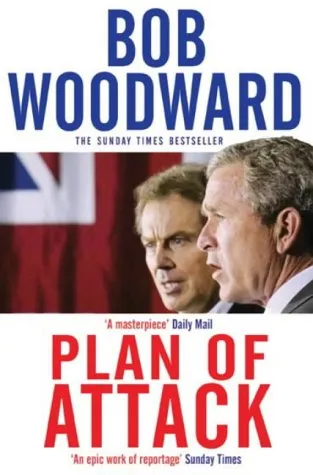
Plan of attack: by Bob Woodward
Plan of Attack is a 2004 book by the American author and investigative reporter Bob Woodward. It was promoted as “a behind-the-scenes account of how and why President [George W.] Bush decided to go to war against Iraq”.
The book’s chief contention, which provides the rationale for its title, is that President Bush planned from early in his presidency to remove Saddam Hussein from power by force, after the failure of serious and extensive diplomacy. The book describes White House deliberations implying that if Saddam were removed from power without a military invasion, Iraq would need a foreign-implemented regime change. It focuses mainly on President Bush, Vice President of the United States Dick Cheney, U.S. Secretary of Defense Donald Rumsfeld, U.S. National Security Advisor Condoleezza Rice, U.S. Secretary of State Colin Powell, General Tommy Franks, and CIA Director George Tenet, as well as Prime Minister of the United Kingdom Tony Blair. Other fixtures are White House advisers such as Karen Hughes and Karl Rove.
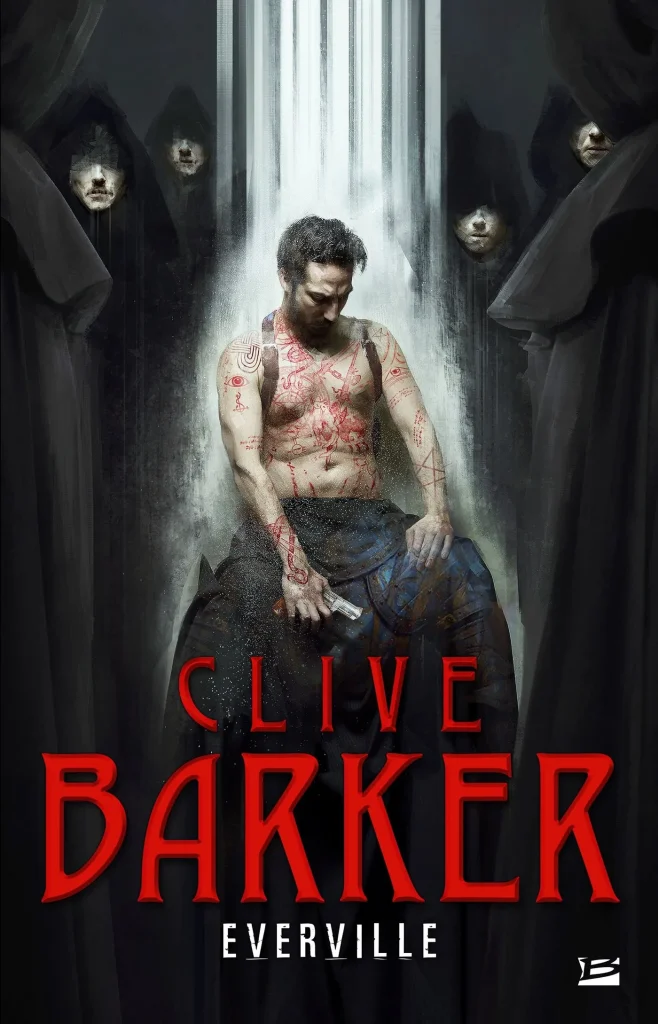
Everville: by Clive Barker
On the borderland between this world and the world of Quiddity, the sea of our dreams, sits Everville. For years it has lived in ignorance of the gleaming shore on which it lies. But its ignorance is not bliss.
On a mountain peak, high above the city of Everville, a door stands open onto the shores of the dream-sea Quiddity. And there’s not a soul below who’ll not be changed by that fact… Phoboe Cobb, once a doctor’s receptionist, is about to forget her old life and go looking for her lost lover Joe Flicker in the strange, sensual wonderland on the other side of that door. Tesla Bombeck, who knows what horrors lurk on the far side of Quiddity, must solve the mysteries of the city’s past if she is to keep those horrors from crossing the threshold. Harry D’Amour, who has traced the ultimate evil across America, will find it conjuring atrocities in the sunlit streets of Everville.

My Life: by Bill Clinton
In My Life, Clinton covered his life chronologically, beginning with his early years in Hope, Arkansas, and his family’s move to Hot Springs, Arkansas, where he attended school and learned the tenor saxophone. It later had a peripheral role in his political public appearances. He had an early interest in politics, which he pursued in college. He eventually ran for and won the Governorship of Arkansas, and later, the Presidency of the United States. Along the way, Clinton offers anecdotes of ordinary people he had interacted with over the years.
Early in Clinton’s life, he recalls listening to his family’s stories of others and learning
that no one is perfect but most people are good; that people can’t be judged by their worst or weakest moments; that harsh judgments can make hypocrites of us all; that a lot of life is just showing up and hanging on; that laughter is often the best, and sometimes the only, response to pain.
Following his defeat for second term as governor, Clinton remarks, “the system can only absorb so much change at once; no one can beat all the entrenched interests at the same time; and if people think you’ve stopped listening, you’re sunk.”
In a political battle, he said that one should wait for an attack from his opponent, then counterpunch as strong and as fast as possible. Early gaffes in Clinton’s political career were a result, he believed, of taking too long to respond to attacks.
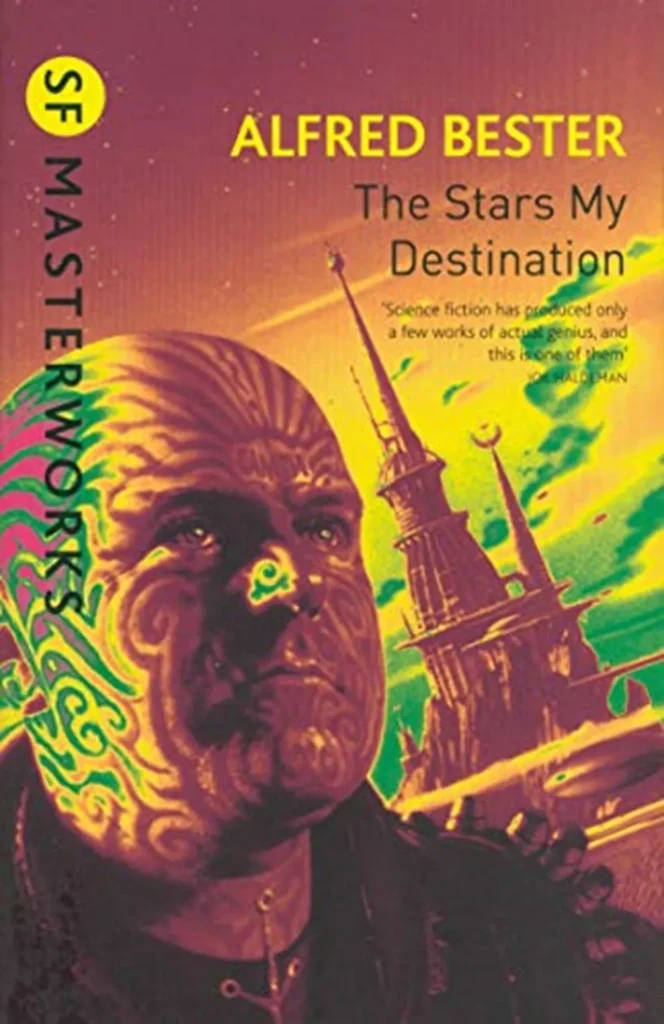
The Stars My Destination: by Alfred Bester
At the time when the book is set, “jaunting”—personal teleportation—has so upset the social and economic balance that the Inner Planets are at war with the Outer Satellites. Gully Foyle of the Presteign-owned merchant spaceship Nomad—an uneducated, unskilled, unambitious man whose life is at a dead end—is marooned in space when the ship is attacked. After six months of waiting, a passing spaceship, the Vorga, also owned by the powerful Presteign industrial clan, ignores his signal and abandons him. Foyle is enraged and is transformed into a man consumed by revenge, the first of many transformations.
Foyle repairs the ship and barely survives but is found and adopted by a cargo cult in the Asteroid Belt who tattoo a hideous mask of a tiger on his face. He recovers his health, escapes and is returned to Terra. His attempt to blow up the Vorga fails, and he is captured by Presteign. Unknown to Foyle, the Nomad was carrying “PyrE”, a new material which could make the difference between victory and defeat in the war. Presteign hires security agent Saul Dagenham to interrogate Foyle, to find the ship and PyrE.
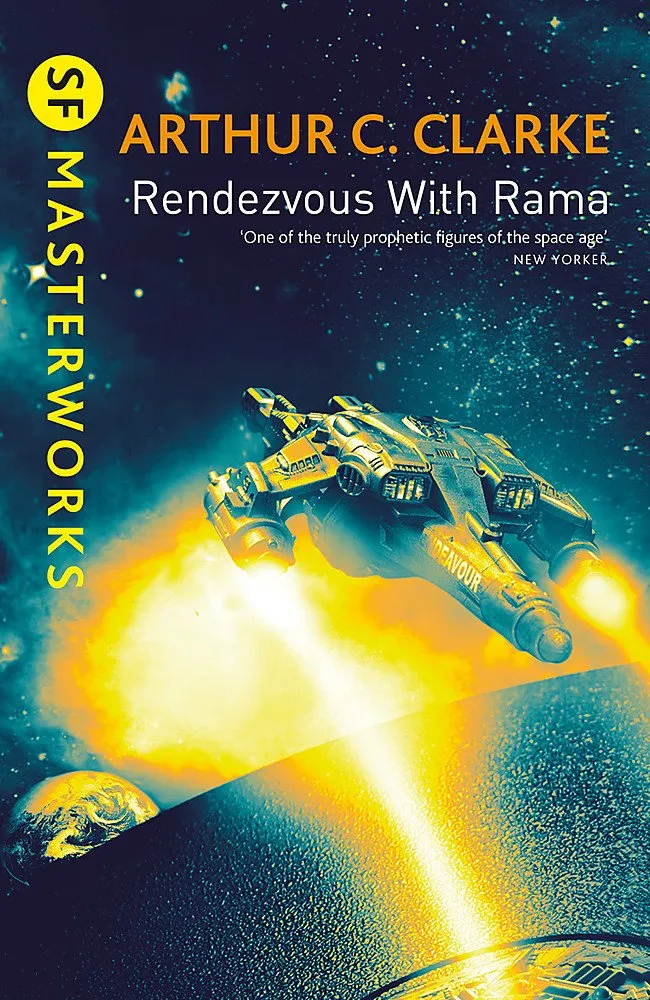
Rendezvous With Rama: by Arthur C Clarke
An asteroid strikes Italy in 2077, prompting the creation of the Spaceguard system to track potentially hazardous objects in space. In 2131, Spaceguard detects an interstellar object entering the Solar System, designating it “31/439” before naming it Rama after the Hindu god. A space probe reveals that Rama is a perfectly smooth cylinder 50 kilometres (31 mi) long and 20 kilometres (12 mi) in diameter, indicating that it was constructed by intelligent beings.
Endeavour is sent to study Rama, being the only ship close enough to do so. The crew navigates through a triple airlock system and descends one of three identical staircases. Inside Rama, they discover two plains that stretch across the interior circumference, divided by a frozen body of water they name the Cylindrical Sea. They identify several city-sized clusters of geometric structures, which they name after major cities on Earth. The United Planets follows their progress closely, and scientists are assembled to form a Rama Committee that considers theories and advises Commander Norton.
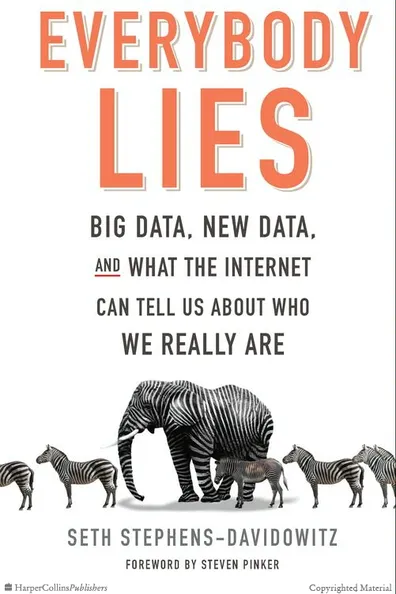
Everybody Lies: by Seth Stephens
Blending the informed analysis of The Signal and the Noise with the instructive iconoclasm of Think Like a Freak, a fascinating, illuminating, and witty look at what the vast amounts of information now instantly available to us reveals about ourselves and our world—provided we ask the right questions.
By the end of an average day in the early twenty-first century, human beings searching the internet will amass eight trillion gigabytes of data. This staggering amount of information—unprecedented in history—can tell us a great deal about who we are—the fears, desires, and behaviors that drive us, and the conscious and unconscious decisions we make. From the profound to the mundane, we can gain astonishing knowledge about the human psyche that less than twenty years ago, seemed unfathomable.
Everybody Lies offers fascinating, surprising, and sometimes laugh-out-loud insights into everything from economics to ethics to sports to race to sex, gender and more, all drawn from the world of big data. What percentage of white voters didn’t vote for Barack Obama because he’s black? Does where you go to school effect how successful you are in life? Do parents secretly favor boy children over girls? Do violent films affect the crime rate? Can you beat the stock market? How regularly do we lie about our sex lives and who’s more self-conscious about sex, men or women?

